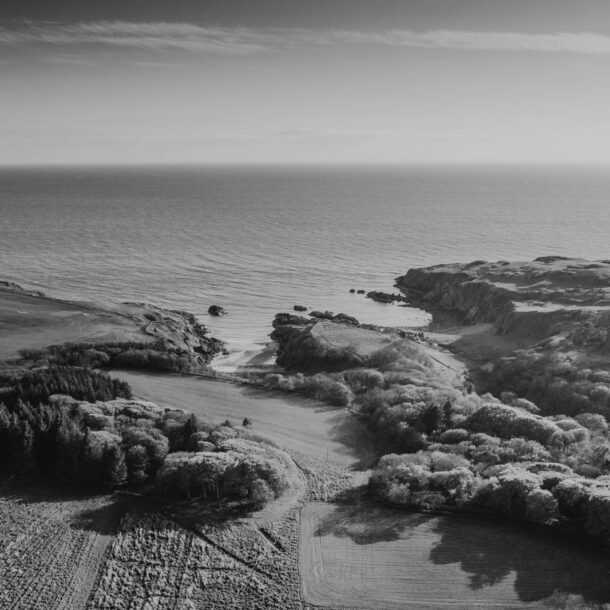

Close

From an early age, Oswald Hunter Blair had an earnest, spiritual inclination. He read the romantic adventure stories of Sir Walter Scott for hours on end, forever fascinated by Scott’s descriptions of England’s Catholic past. When he arrived at Eton, “the aura of Catholicism (still) hung faintly about her venerable halls and cloisters;” for him, the Medieval Gothic lacework on the ceiling of his boarding school’s chapel whispered of a beautiful, bygone era of faith.
To convert to Catholicism in Victorian England was a scandalous, rebellious act. Most restrictions on Catholics were only lifted in 1829. Catholics had been banned from public office and leading universities for centuries. But after the government loosened its restrictions, Catholicism enjoyed an unexpected English Renaissance. Prominent thinkers, writers, and children of the aristocracy converted. For many, conversion was a reaction against the accepted social norms and institutions that dominated England. Their Catholicism grew out of a romanticized impulse to seek a purer, older, and more beautiful faith than the established church they knew since childhood.
To Hunter Blair’s friends at Oxford, he was Dunsky, a nickname that played on the name of Dunskey Estate in Scotland, which he inherited when he was only four. He had two sets: His boisterous friends from Eton, and the circle around William Ward, a scholarly, intellectual student who took his studies more seriously than his drinking. One evening in Ward’s rooms, Hunter Blair met Oscar Wilde. Wilde was not yet the notorious public provocateur and probing satirist of his adult years. “I have a vivid recollection of him at our first meeting in Ward’s rooms,” Hunter Blair wrote. “The large features lit up by intelligence, sparkling eyes, and broad cheerful smile; altogether an attractive personality, enhanced by his extraordinary conversational abilities.” Wilde had arrived at Oxford from Trinity College in Dublin because of his unmatched academic performance. He was flamboyant, brilliant, hilarious, and earnest all at once. He knew how to play with words, drink hard, and collect all things beautiful. He entertained liberally, with a liberal hospitality everyone knew he couldn’t afford.
Every Sunday, Wilde, Hunter Blair, and Ward sat in front of Wilde’s fire after one of his regular parties and talked long into the night. Wilde was always the protagonist of their midnight conversations, “pouring out a flood of paradoxes, untenable propositions, quaint comments on men and things,” and casually dropping into poetry both original and recited. Around this time, Hunter Blair converted to Catholicism while on a trip to Leipzig and Rome. Most of his Oxford friends chose to ignore his decision even when it caused a flare-up in the press. But Wilde asked him questions about his faith with the curiosity of someone who felt the same spiritual pull.
Hunter Blair observed Wilde’s interest, and committed himself to aiding his friend’s conversion. He brought Wilde to Catholic student gatherings, engaged him in conversations about religion, introduced him to a Jesuit priest, and urged him to convert in earnest instead of flirting with faith. Wilde insisted that his father would never let him convert and still support him, and even if he did, his faith was not strong enough. Hunter Blair urged Wilde to accompany him to Rome where he was certain the stronghold of the Catholic Church would overwhelm any doubts. But Wilde demurred: “I am absolutely and irretrievably ‘broke,’” he wrote. So Hunter Blair promised to put two pounds on a gambling table at Monte Carlo and send him the proceeds if fate decided Wilde was bound for Rome. Sure enough (and perhaps because Hunter Blair fronted the cash), he wrote to Wilde that he had won 60 pounds. Wilde started for Rome.
Hunter Blair was eager to win a soul for the Catholic Church. He showed Wilde the most beautiful sites of Catholicism, and even secured him an audience with the Pope. After the visit, Wilde locked himself in his room at their hostel without saying a word and emerged with a poem that described a yearning for faith he couldn’t quite call his own. Hunter Blair had hope. But much to his consternation, Wilde was far more moved when they passed Keats’ grave in the Protestant cemetery. He lay prostrate before the famed Romantic poet’s grave, far more overcome with emotion than he had been in the audience of the stiff and doctrinal Pope Pius IX.
Why didn’t Wilde follow Hunter Blair’s lead? As a young man, Wilde was exploring a multitude of creeds and worldviews: Freemasonry, ancient Greek mythology, and yes, also Catholicism. But he did not limit himself to one set of dogmas or any creed. Instead, he embraced paradox. As Richard Ellmann, a literary historian, put it: For Wilde, “the object of life is not to simplify it. As our conflicting impulses coincide, as our repressed feelings vie with our expressed ones, as our solid views disclose unexpected striations, we are all secret dramatists, whether or not we bring our complexities on the stage.” So instead of converting, Wilde embraced paradox and all the messiness of life. He left Rome to tour Greece and fell in love with the peninsula’s pagan Hellenistic past with all the fervor that he had felt for Catholicism.
Years passed. Wilde and Hunter Blair grew apart. Hunter Blair became a Benedictine monk and eventually an abbot. He gave up his birthright as a Scottish laird and sold Dunskey to his nephew. Wilde became a notorious thinker and aesthete who scandalized English society with his biting satire and open homosexuality. In 1895, he was sentenced to two years hard labor because of his sexuality. The Wilde who emerged from prison was sedated, and his literary days was over. He took refuge in France, and in the last days of his life, converted to Catholicism. Hunter Blair never stopped praying for his friend’s soul, and he was relieved that Wilde had finally arrived at the Church. “May my poor friend, after his strange and tragic life, prematurely cut short,” he wrote, “have, in the Divine clemency, won at length to where ‘beyond these voices there is peace’.”